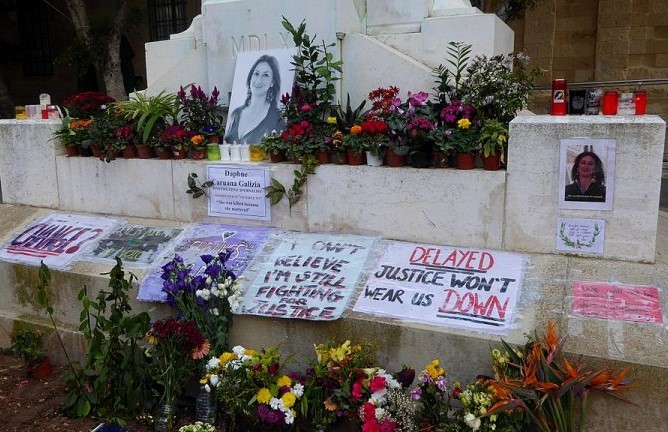MEPs take stock of the situation in Malta and threats to journalists, paying tribute to Caruana Galizia’s “essential work” in exposing corruption and organised crime. In a resolution adopted with 437 votes in favour, 14 against, and 66 abstentions, Parliament highlights the limited progress in judicial proceedings for Caruana Galizia’s murder, noting that there have only been three low-level convictions and that the mastermind behind the assassination has not been convicted. Investigations into core motives and corresponding judicial proceedings should be concluded without further delay, with the “full and continuous involvement of Europol”, says the text.
MEPs are appalled by the Maltese Prime Minister’s statement earlier this month downplaying institutionalised corruption, and assert that such statements “entrench the culture of impunity”. They call for thorough, swift, and independent investigations and prosecutions of all public officials allegedly embroiled in corruption, extortion, and trading in influence – including in the vote-buying scheme and driving licence racket.
Parliament complains about the persistent lack of progress in prosecuting the crimes that Daphne Caruana Galizia investigated, which point to suspects at the highest political levels. It also denounces the “institutional failure of law enforcement and justice in Malta”, including the slow progress in proceedings against Pilatus Bank officials and the efforts by authorities to suspend them.
MEPs also speak out against the impunity afforded to the former prime minister, his chief of staff, and the former minister for tourism, also formerly the minister for energy; police action against activists; the government’s hostile rhetoric targeting journalists and obstacles to media freedom and pluralism; the fact that journalists, as well as family members of Daphne Caruana Galizia, are still the target of SLAPPs; the restrictive abortion law that has been passed in Malta and the Maltese Citizenship by Investment programme.
Looking beyond Malta, MEPs condemn any criminalisation of and attacks on journalists for doing their job. They recall in particular the killings of Ján Kuciak and his fiancée Martina Kušnírová in Slovakia, of Viktoria Marinova in Bulgaria, of Giorgos Karaivaz in Greece, and of Peter R. de Vries in The Netherlands.

